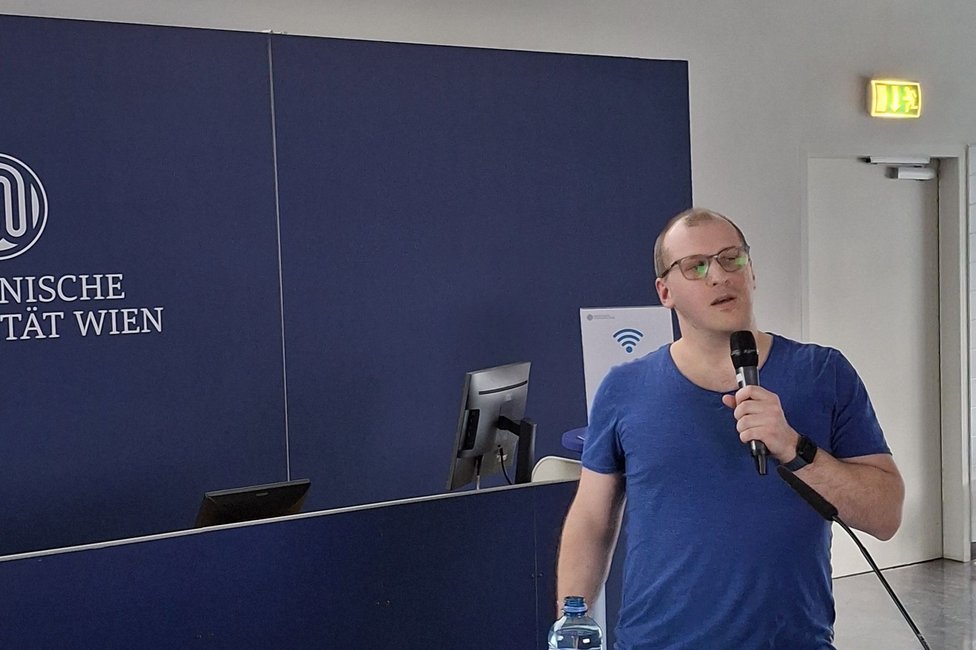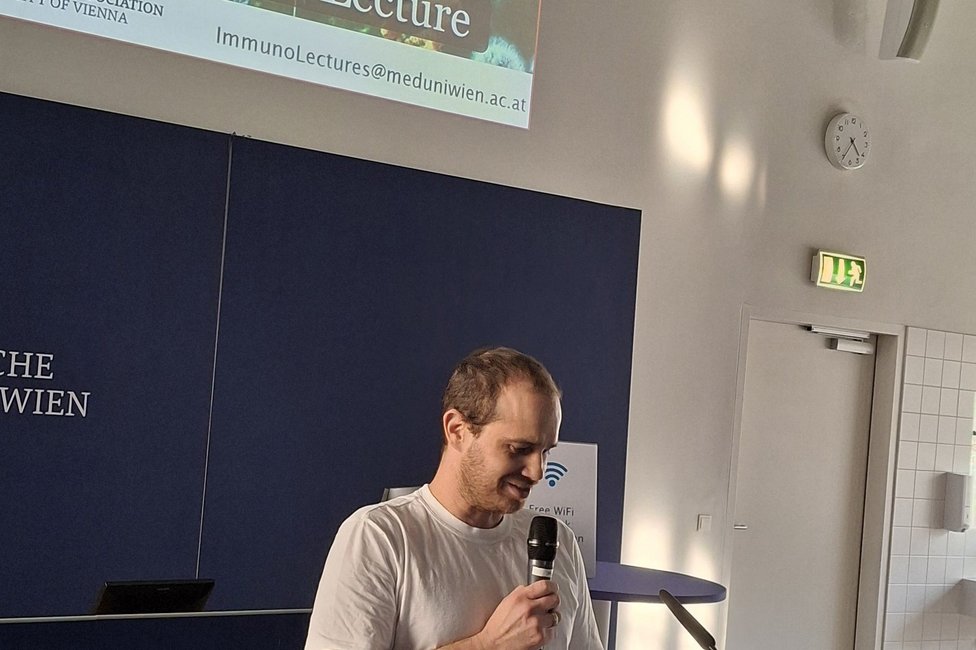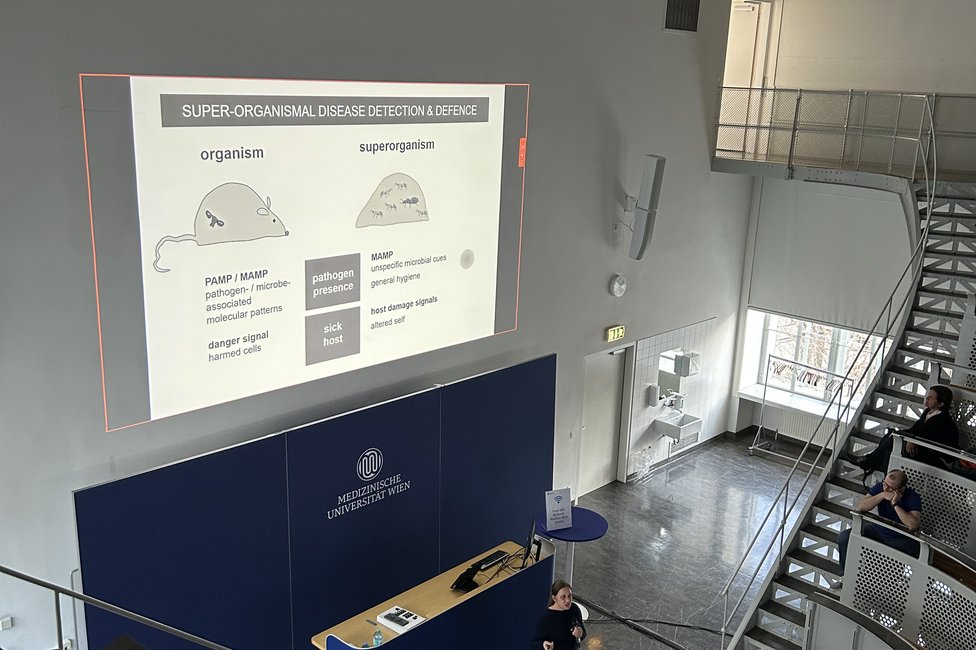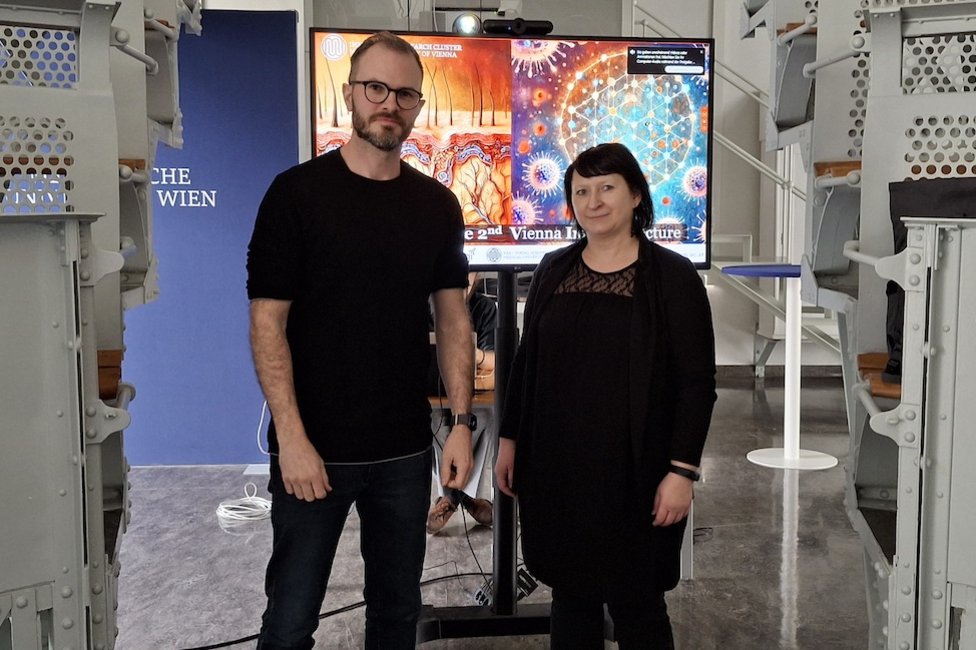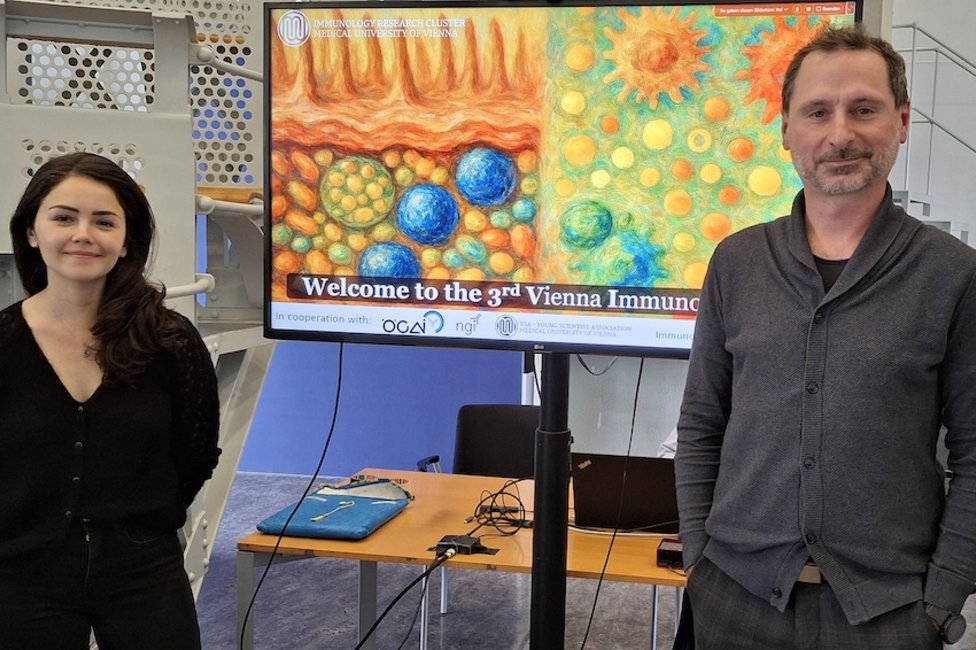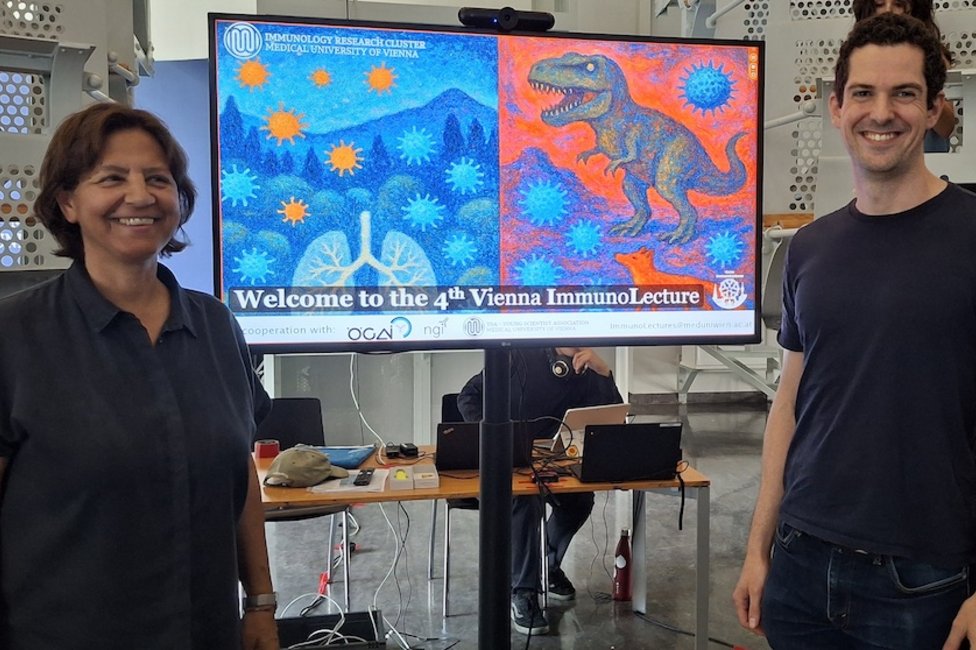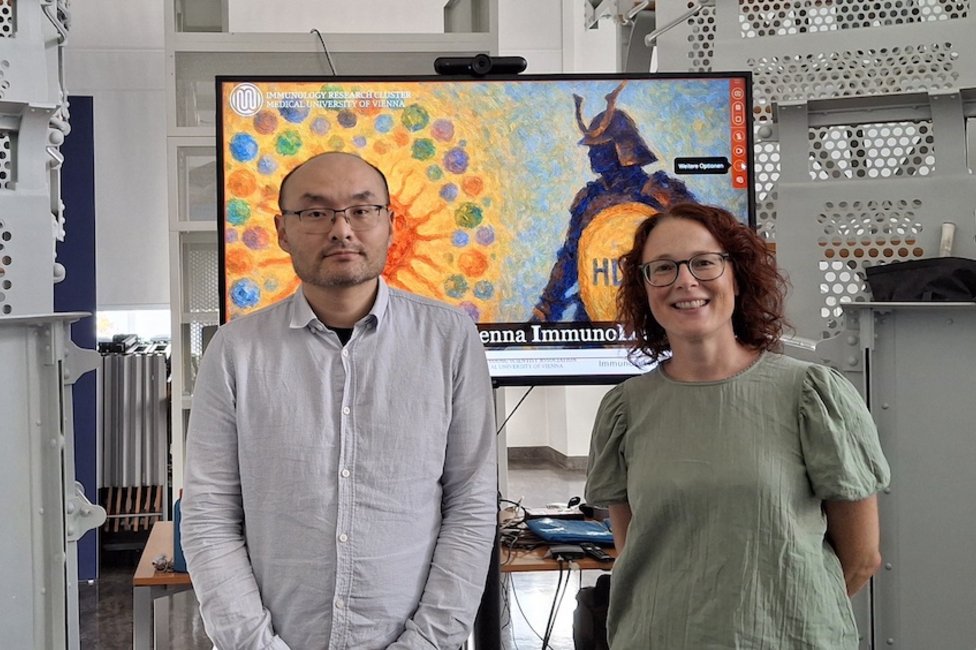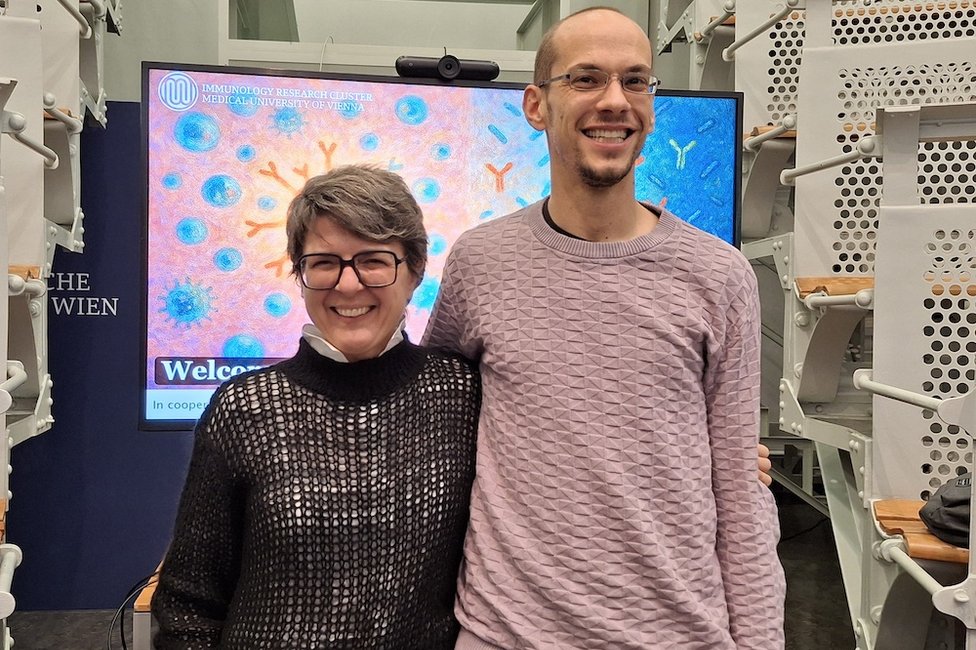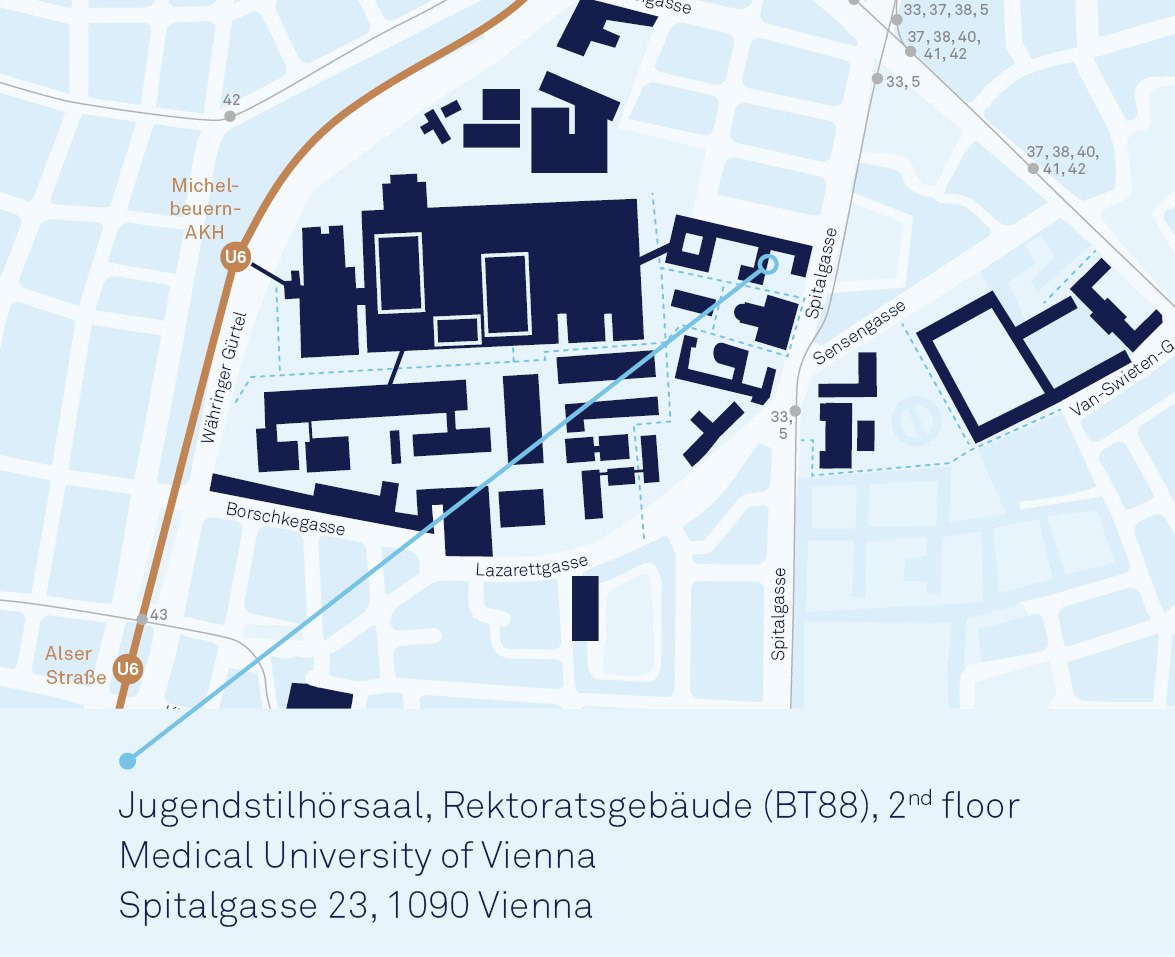The Vienna ImmunoLectures (VIL) are a series of lectures that take place approximately once a month in the Art Nouveau lecture hall of the Medical University of Vienna and are supported by the Immunology Research Cluster (IRC) and the Young Scientists Association (YSA) of the the Medical University of Vienna together with the Next Generation Immunologists of the Austrian Association of Allergologists and Immunologists (ÖGAI).
Two outstanding immunologists will present their research in the form of lectures. The lecture series is held as a "hybrid meeting" and is intended to offer immunologists in Austria a platform to present their research and exchange ideas with other researchers. Before the talks, there will be the possibility for personal meetings with the speakers for students and scientists (registration required). A relaxed get-together after the lectures will provide opportunities for interactions and networking.
We look forward to welcoming a large number of participants.
Dear colleagues,
The Vienna ImmunoLectures will pause during the winter season and resume in March 2026. The organizing committee extends its sincere thanks to all speakers for their outstanding contributions throughout the year and wishes everyone a joyful holiday season and a successful start to the new year. More information will follow in January 2026.
We would be very happy to hear from you (at ImmunoLectures@meduniwien.ac.at) in case you would like to be part of the organizing committee!
Kind regards,
Taras Baranovsky (MedUni Wien, Young Scientist Association)
Nicole Boucheron (MedUni Wien)
Bihua Chen (MedUni Wien)
Anja Obrenkovic (Uni Wien)
Lisabeth Pimenov-Reifeltshammer (MedUni Wien, Next Generation Immunologists)
Katarina Repiska (MedUni Wien, Next Generation Immunologists)
Piyal Saha (MedUni Wien Young Scientist Association)
Philipp Starkl (MedUni Wien)
Employees of the MedUni Vienna who need a childcare for our event can request a flexible short-term help free of charge. Those concerned can find more information and register for short-term care online (at least 2 business days in advance) at:
We thank the speakers and participants for successful events
Kontakt
Nicole Boucheron
Immunology Research Cluster
Lazarettgasse 19, 1090 Vienna
Tel: 01 40160 33297
ImmunoLectures@meduniwien.ac.at
The VIL organizing committee
- Taras Baranovsky (MedUni Wien, Young Scientist Association)
- Nicole Boucheron (MedUni Wien)
- Lisabeth Pimenov-Reifeltshammer (MedUni Wien, Next Generation Immunologists)
- Katarina Repiska (MedUni Wien, Next Generation Immunologists)
- Piyal Saha (MedUni Wien Young Scientist Association)
- Philipp Starkl (MedUni Wien)


